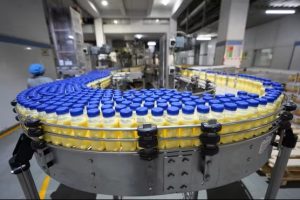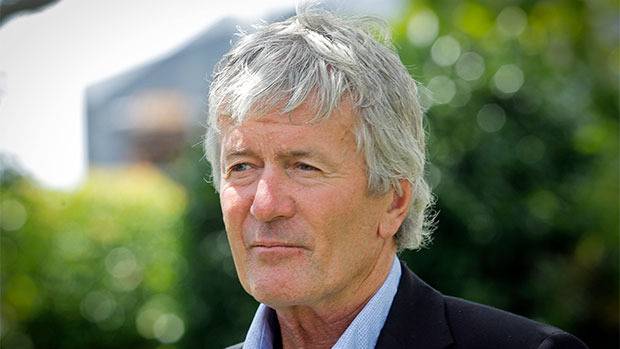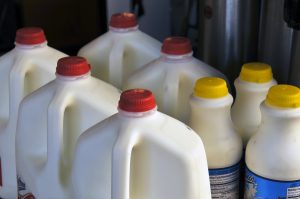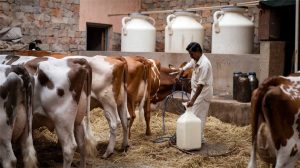
Trade Minister Damien O’Connor offers to share technology and best practices.
Soon after India’s exit from the multi-lateral trade pact, Regional Comprehensive Economic Partnership (RCEP), a prominent partner in the mega trade bloc, New Zealand, has extended a helping hand for best practices in the dairy sector by offering technology and systems.
On the last day of his three-day visit to India, Damien O’Connor, New Zealand’s Minister of State for Trade and Export Growth, engaged with Amul at the milk capital of India, Anand, and tried to understand India’s cooperative structure and the functioning of the dairy market in the country.
Asked if New Zealand looks at India as a potential market, O’Connor stated: “Our countries share a lot of similarity in legal systems, cultural background. About 5 per cent of our population in New Zealand is Indian or of Indian descent. So, we believe it’s a market we should talk to. There is also an opportunity for more trade with India.”
O’Connor, who is also Minister for Agriculture, spent a day meeting dairy farmers and visiting Amul’s milk product manufacturing facilities around Anand.
“We discussed how the (dairy) market works in India. (It is) slightly different than in New Zealand. But there are many similarities between our dairy industry and Amul. We have built a very successful dairy industry,” O’Connor said during a media interaction at AmulFed dairy in Ahmedabad on Thursday..
“Though small, at about 2 per cent of the world’s total dairy production — it is based on cooperatives. And that has delivered benefits to our farmers and allowed our industry to grow. And I am sure the same thing that we see today (at Amul) will allow growth for Amul and the Indian dairy industry,” he added.
Notably, during the earlier negotiations for an RCEP agreement, Indian farmers, led by milk federations and dairy organisations, had expressed their apprehensions about dumping of dairy products by major producers like New Zealand, destroying the farmer-driven milk economy in India.
However, denying any such threat from New Zealand, O’Connor stated that the quantity of dairy products that would “come to India would be very very small.”
Elaborating on the perceived threat, he clarified that “sometimes, we can say that a wrong product at a wrong time can affect prices here. We have discussed that at the political level and it has been discussed with Amul today. We have to respect the wishes of companies like Amul and your political leaders. We believe that with better and more trade, we can share the benefits and bring better products when there are shortages in some of the product lines.”
RS Sodhi, Managing Director of ‘Amul’ marketer Gujarat Cooperative Milk Marketing Federation (GCMMF), stated that the two sides explored cooperation in artificial insemination, processing, tagging and other aspects of the dairy system and challenges where New Zealand has advanced technology to address them.
“The discussions were held regarding potential areas for collaboration for mutual benefit. New Zealand is very advanced in feeding and breeding practices, and these are areas where they can help us. We can increase animal productivity with the technology and methods adopted by them,” Sodhi stated.
Hailing from a dairy farm in New Zealand and a “passionate supporter of cooperatives”, O’Connor stated that it is important for industry players and farmers to understand the value and strength of cooperatives.
“Without cooperatives, a product like milk, which has a very short shelf life, becomes a liability for farmers. So, you have to have someone who can help you process that product. Most of Amul’s operations, starting from grassroots farmers all the way to (processing) factories, reflect the progress and success that we see in New Zealand.”
As a pilot project for mutual engagement on dairy cooperation, New Zealand’s dairy farmers are currently working with some Indian farmers in Sonepat (Haryana), where about 300 milch cross-breed cows are being maintained using standards set by New Zealand. This pilot supplies a small quantity of milk to Delhi’s markets at present.
There is also a joint venture between New Zealand’s cooperative dairy, Fonterra, and India’s retail giant Future Group, which uses Indian milk to develop and supply high-value consumer products using Fonterra’s technology.
















